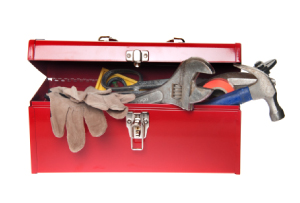 As a coach, I help clients to navigate career change all the time – and often what holds people back is the prospect of having to start all over again.
As a coach, I help clients to navigate career change all the time – and often what holds people back is the prospect of having to start all over again.
Yes, you may need to up-skill or take on some re-training to transition, but chances are you already have many skills and strengths which are marketable – and sometimes highly valuable – to a new field.
Your transferable skills are the tools you already have in your kit; the assets you offer now.
Unfortunately, most of my clients simply don’t recognize the knowledge, skills and strengths that they have; Few people can easily tell me what they’re good at. And if you can’t see what skills and strengths you have to offer – let alone talk with conviction about them – you’re going to find it hard to market yourself effectively to a new job, career or employer.
A key to changing career is getting familiar with your own transferable skills.
Here are 3 of my favourite ways to start exploring yours…
Scan online job sites
If you’ve ever held a position of any kind, then online recruitment sites are my first suggestion for exploring your transferable skills. Hop onto seek, careerone, indeed – any job site you’re familiar with – and type in variations of the job titles you’ve held; it doesn’t matter where the jobs are based, this is purely for research.
Now scan the advert – and any position descriptions – looking for the job requirements. Do they need high-level communication skills? The ability to manage conflicting priorities? Strong stakeholder relations? If you did that job successfully, then you can safely lay claim to those skills… and that applies equally to any voluntary or pro bono experience.
Explore your accomplishments
I’ve yet to meet the client with no achievements – everybody’s done something. Whether you’ve successfully met sales targets or work deadlines, organized a community event or raised a family, you’ve used a host of skills, strengths and abilities in the process.
Pick something you’re proud of, and then start breaking it down into tasks. What did you need to do and how did you do it. What skills did you use at each stage of the process? It’s often easier to do this with someone else’s input – just make sure you choose someone honest, insightful and above all, supportive of you.
Ask the people who know you
Just as you can see what other people are good at, they too have a clear view of your strengths. From previous colleagues and managers, to good friends and family members, it’s worth directly asking what others see as your natural strengths and skills. What are you good at? What do you do with ease? You can ask in person, or by e-mail… just be sure you only canvas the opinions of people you know will be constructive.
Once you’ve pulled together 3 different lists, start looking for the overlaps. See the same skills repeat? You’re looking at a key strength – own these, and take pride in them. Put them in your own words, explore how they’ve helped you succeed in past roles… and start thinking about how they can add value to a new role.



